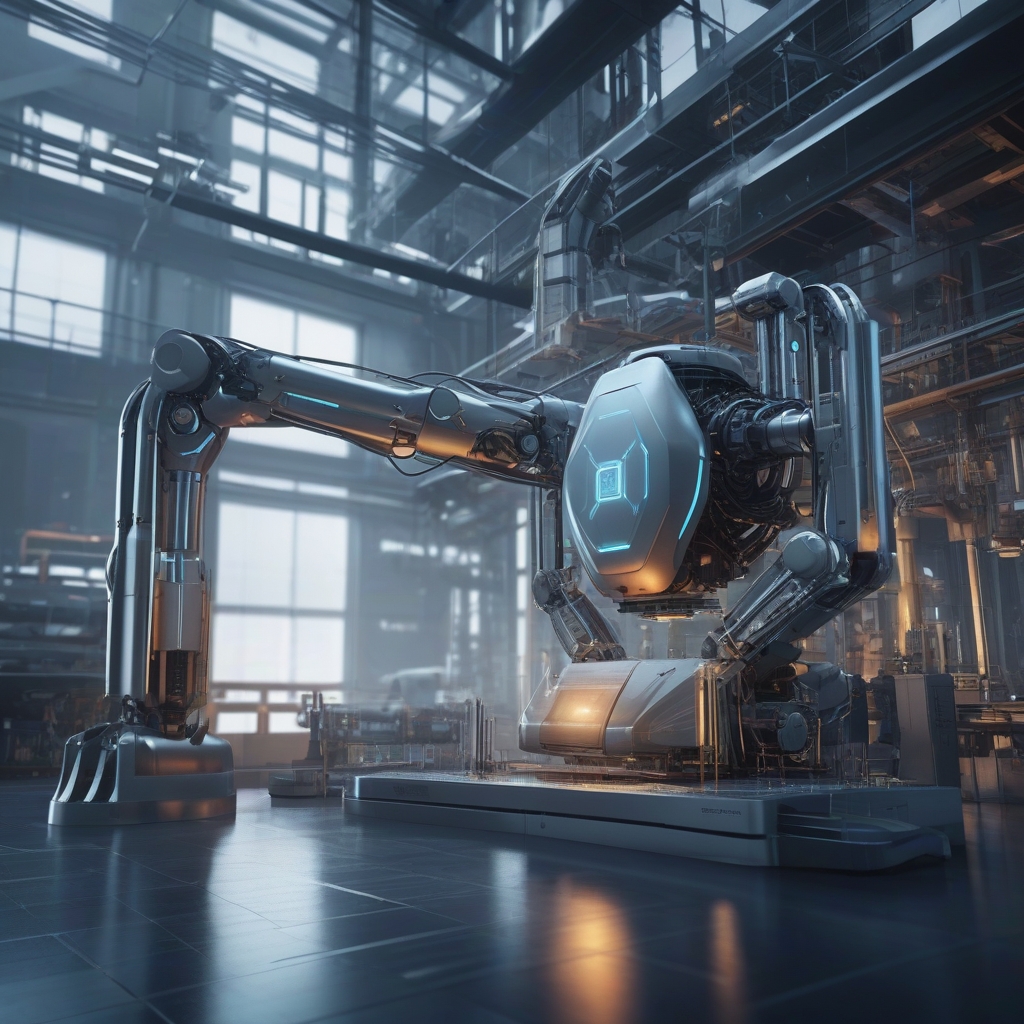The Evolution of Automation with AI
The landscape of industrial automation is undergoing a seismic shift thanks to the advent of artificial intelligence. Traditionally, automation has been synonymous with increased efficiency and reduced human error. Now, with AI being at the forefront, industries are entering a completely new realm of operational excellence. The amalgamation of AI with automation processes not only amplifies efficiency but also brings about a level of intelligence and adaptability previously unimaginable.
AI’s Role in Modern Automation
Artificial intelligence serves as the cerebral cortex of modern automated systems. Unlike traditional automated setups that follow predefined paths, AI-infused systems can dynamically adapt and optimize processes in real-time. Here’s how AI is transforming automation:
- Predictive Maintenance: Traditional machinery often breaks down unexpectedly, leading to costly downtimes. AI algorithms can predict when a machine is likely to fail, allowing for timely interventions and minimizing disruptions.
- Quality Control: Through machine learning and computer vision, AI-powered systems can detect defects with unprecedented accuracy, ensuring higher quality outputs and reducing waste.
- Resource Optimization: AI systems can analyze vast amounts of data to optimize resource allocation and energy consumption, significantly cutting costs and reducing environmental impact.
- Enhanced Decision Making: By analyzing historical and real-time data, AI systems provide actionable insights, aiding humans in making informed and timely decisions.
Revolutionizing the Industrial Scene
The integration of AI in automation is resulting in a futuristic industrial landscape that is smart, responsive, and highly efficient. Factories equipped with AI-driven automation exhibit several advanced features:
- Autonomous Robots: Robotic arms and smart machinery can independently carry out complex tasks, enhancing productivity while ensuring precision.
- Smart Logistics: AI algorithms manage supply chains effectively by predicting demand surges and optimizing inventory levels, thereby reducing costs and delivery times.
- Real-time Monitoring: With AI, factories can perform real-time monitoring of all processes, allowing for immediate corrective actions and process optimization.
The Synergy of AI and Human Workforce
While AI and automation offer a plethora of benefits, they also raise pertinent questions regarding the implications for the human workforce. However, rather than replacing human workers, AI serves as an empowerment tool, augmenting human capabilities:
- Collaborative Robots (Cobots): Unlike traditional robots, cobots are designed to work alongside humans, handling repetitive tasks and minimizing physical strain on workers.
- Skill Enhancement: As AI takes over mundane tasks, the human workforce can focus on more strategic roles, enhancing their problem-solving and managerial skills.
- Job Creation: New roles are emerging in AI system management, programming, and maintenance, requiring a highly skilled workforce knowledgeable in advanced technologies.
Overcoming Challenges and Ensuring Success
The path to fully harnessing AI in automation is fraught with challenges, however. Industries must address these obstacles to ensure a successful transition:
- Data Privacy and Security: Collecting and analyzing data are fundamental to AI operations. Industries must implement stringent data privacy measures to protect against breaches and misuse.
- Integration Complexity: Seamlessly incorporating AI into existing systems can be challenging. Companies need robust strategies and skilled personnel to ensure smooth integration.
- Cost and Investment: AI technology requires substantial upfront investment. Long-term planning and understanding of return on investment are essential for businesses.
- Ethical Considerations: As AI systems make decisions, ethical frameworks must be established to prevent biases and ensure fair outcomes.
The Future is AI-Driven Automation
As industries cross the threshold into an era defined by artificial intelligence and automation, the focus must remain on harnessing these technologies responsibly. Companies that adopt AI early will likely gain a strategic edge, benefiting from increased efficiency, reduced operational costs, and enhanced product quality.
Yet, this journey towards AI-driven automation is not just about technology—it’s about creating a symbiotic relationship between machines and humans, where each complements the other, leading to a future where industries can innovate, grow, and sustain in a world that’s increasingly driven by intelligent systems. Embrace the AI revolution, and let the future of automation redefine what is possible in every industrial sector.

Leave a Reply